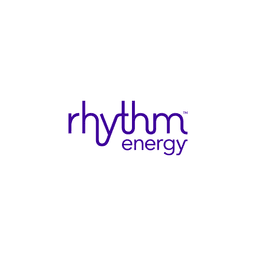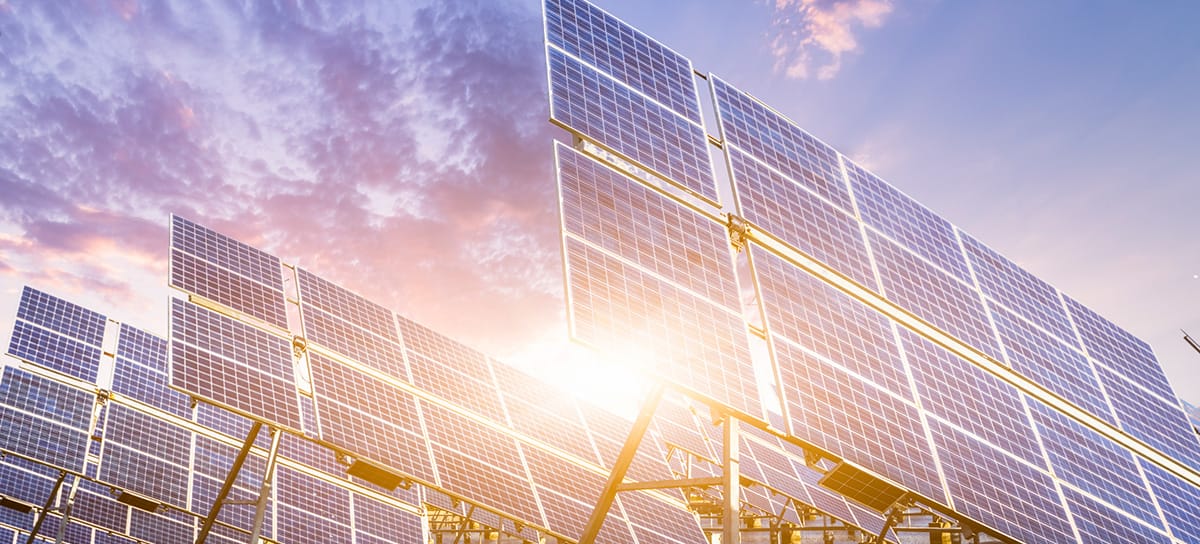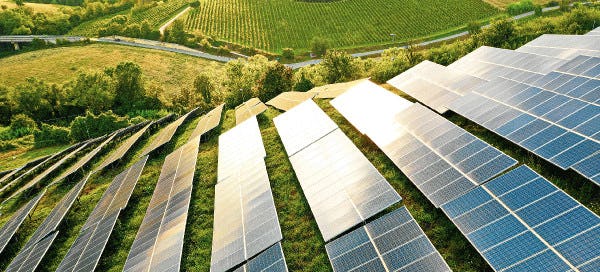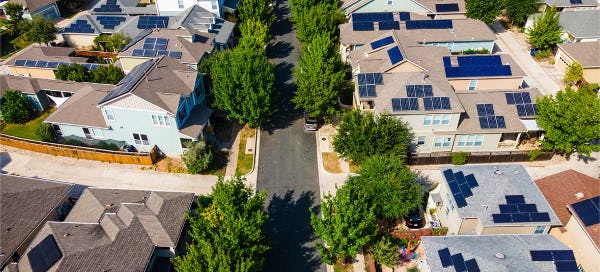Solar powered products have been around for decades. Most of us have used a solar-powered calculator or watch at some point. We continue to benefit from their power every day. As home solar panels have become more popular, a frequently asked question is how much electricity does a solar panel produce?
Solar panels have been a part of our lives for decades and their applications have expanded to power our homes. As the adoption of home solar panels grows, a frequently asked question revolves around their electricity-generating capacity: "How much electricity can a solar panel produce?"
A typical solar panel delivers a power output of 250 to 400 watts and produces approximately 1.5 kilowatt-hours of daily energy. But, will it be beneficial for your home? The efficiency of a solar panel depends on many factors, including its size, capacity, and geographic location. Discover more insights in our comprehensive guide.
What Are Solar Panels?
One of the best options to make the most of your home's energy and contribute to the green environment is by using solar panels. Solar panels are devices that convert the sun's energy into electricity, supplying your home with a sustainable and eco-friendly source of power. Since they are very easy to install and use, many homeowners in Texas already use solar panels. On top, solar panels are cost-effective, providing a long-term savings potential, especially with Rhythm Energy's Solar Buyback Plans.
How Do Solar Panels Work?
As already mentioned, solar panels use sun energy and convert it into electricity. If you are wondering how solar panels actually do that, here’s a quick explanation.
Each solar panel is created of photovoltaic cells. When sunlight strikes these cells, these cells employ specially designed semiconductors to seize electrons from the sunlight and transform them into electrical energy. That’s the whole magic. The power generated by photovoltaic (PV) solar panels is used in your household to power different devices, including your AV charges, refrigerators, and lights.
How Much Power Does a Solar Panel Produce?
When it comes to solar panel production, many factors impact the final numbers. The first thing you should know is that the manufacturers play an important role in creating powerful PV solar panels. The panel manufacturers determine the amount of power that the solar panel can produce. The wattage of each product is labeled, so you can easily check it before purchasing. However, keep in mind that the wattage you see shows the highest quantity of power that the solar panel can produce in ideal conditions.
Solar panel manufacturers conduct the standard test when testing the panels. They check the performance during the sunny hours and at 77 degrees Fahrenheit. Usually, panels are positioned at angles between 30 and 45 degrees, so they get the maximum exposure to the sunlight. Also, the ideal conditions include the power that the solar panels receive the 1,000 watts of sunlight energy per square meter of its surface area.
Another question that should be addressed is: "How much power does 1 solar panel make?", you also need to check the size of your solar panel. Namely, the wattage of a solar panel increases with its size. There are two standard types of solar panels: small, 60-cell panels, and 72-cell panels. The first type is used for residential houses, while the second one is for commercial or industrial buildings. On average, one household needs 20 solar panels.
So, the answer to the question “How much power does a solar panel produce in 2023?” is 250 to 400 watts of power, under the ideal conditions. However, the actual solar panel power production will depend on various factors, including sun hours, shade, and orientation.
How Much Electricity Does A Solar Panel Produce Per Day?
The electricity that a solar system produces is measured in kilowatt-hours (kWh). So, a residential solar panel with a capacity range between 250-400 watts per hour can produce approximately 2-3.2 kilowatt-hours (kWh) of electricity per day. Of course, this is in the case of ideal weather conditions and its efficiency.
The formula that you can use to calculate the solar panel output per day is the wattage of your solar panel multiplied by the average hours of sunlight. For example, if you have a 250-wattage solar panel that receives 6 hours of sun exposure, the power output is 1500Wh or 1.5 KwH.
The only thing you should know is the average number of sunny hours in the area you live. If you are considering moving to Texas, there's no need to worry about sunlight exposure. Texas is one of the sunniest states in the US. Of course, you can also check this information with the solar panel providers. They will inform you about the average number of sunny hours per day in your area and also help you place your solar panel so you can benefit the most from it.
How Many Solar Panels Do I Need For 1000 Kwh Per Month?
The number of solar panels depends on environmental conditions, locations, and solar panel efficiency. However, approximately 27 panels are needed for energy power production in ideal conditions.
How Many Kwh Will A Solar Panel Generate?
The answer isn't one-size-fits-all, as it depends on various factors, including your location, the type of solar panels you choose, and the amount of sunlight they receive. However, the typical solar panel for homeowners has a power output rating of 250 to 400 watts (W) and, on average, delivers approximately 1.5 kilowatt-hours (kWh) of energy daily.
Types of solar panels
When it comes to solar panels, you should also know that they come in several forms. There are three most common solar panels, and each of them has its own advantages. If you are looking for solar panel installation for your home, there are three types that you can choose from:
Monocrystalline: These solar panels are the most efficient ones, made of pure silicon. Thanks to their efficiency, monocrystalline solar panels are widely used among consumers despite their high prices. However, the price comes with a longer lifespan.
Polycrystalline: They are intermediate solar panels when it comes to efficiency and price. Manufacturers make them with melted silicon crystals. When it comes to longevity, they last less than monocrystalline.
Thin-Film: These solar panels are the least efficient and have the shortest lifespan. They are built with a minimal proportion of silicon combined with other materials. The good thing about these solar panels is their affordability.
What Affects Solar Panel Production?
The wattage of solar panels is rated under the ideal conditions, but the output of the energy they produce is slightly different in the field. If you have a 400 W panel, you can expect that it will operate closer to 350 W. There are many factors determining the production of solar panel systems. Here's the list with explanations of the most important ones:
Solar Panel Efficiency
One of the most important things to look at when choosing solar panels is efficiency. Why does solar panel efficiency matter? Well, a solar panel's ability to generate power is directly linked to its efficiency. The efficiency of a solar panel is related to the ability of a panel to convert sunlight into electricity. The more they can convert, the more efficient they are, meaning that you'll get more electrical energy.
The Sun Exposure and Weather Conditions
As already mentioned, the production of electrical power depends on weather conditions. In sunny states, like Texas, where you have a lot of sunny days, your solar panel exceeds the full efficiency. Cold weather and rain decrease solar panel output. However, solar panel systems don't perform well in extreme weather conditions, regardless of whether they are subjected to harsh heat or freezing cold.
Type of Panels
Various types of solar panels demonstrate differing levels of efficiency, making it important to choose the right one for your specific needs:
Monocrystalline solar panels are the most efficient ones with an efficiency of 20% and up.
Polycrystalline solar panels efficiency is mediate, ranging between 15% to 17%.
Thin-film solar panels are the least efficient ones, which can range anywhere between 6% and 6%, depending on the different technologies.
Solar Panel Orientation
Another thing that impacts solar panel production is the orientation of solar panels. In the best case, solar panels should be positioned to directly face the sun. However, the angles of roof surfaces are often not optimized for maximum energy generation.
Shade
Finally, solar panels should not be in the shade. Installing solar panels in the shade is not advisable because shade reduces the amount of sunlight the panels can catch. Considering that the efficiency of solar panels depends on the amount of direct sunlight, shading can significantly decrease their energy production, making the investment less cost-effective.
How To Maximize The Output Of Your Solar Panels
There are many things you can do to ensure your solar panels work at full capacity, maximizing the electricity generation. Maintaining your solar panels is straightforward, involving basic tests and procedures, such as:
There are many things you can do to ensure your solar panels work at full capacity, maximizing the electricity generation. Maintaining your solar panels is straightforward, involving basic tests and procedures, such as:
Proper Installation: Proper installation is essential; ensure your solar panels are positioned in an area with plenty of sunlight, avoiding any shaded locations for optimal efficiency and energy production.
Cleaning: Regularly check your solar panels for signs of physical damage, such as cracks. Also, make sure they are clean from dust and dirt, as those can block sunlight.
Regular Monitoring: Modern solar panels come with a monitoring tool that allows you to track the energy production in real-time conditions. Many providers offer a mobile app, so you can monitor your solar panel from your phone.
Energy Bill Assessment: You should review your energy bills for both pre- and post-solar panel installation. If you see a decrease in your electricity costs, it means that your solar panels are effectively neutralizing a substantial portion of your energy consumption.
Professional Inspection: It's a wise decision to engage a qualified expert to thoroughly assess your solar panel system. This proactive step ensures your panels are operating at their peak performance and can help identify any potential issues for timely resolution.
My Home Produces More Electricity Than I Need
Your solar panels will likely produce more energy than you can use. So what happens to that extra renewable energy? Additional energy generated by your solar panels can be sent back into the Texas power grid to help other members of your community with their power needs. With a solar buyback plan, you will get buyback credits on your monthly statement.
How to Build the Most Efficient Solar Panel System
If you require a solar panel system for your home, the most reasonable course of action is to reach out to professional solar installers. They possess the expertise to guide you in evaluating your specific energy needs, assess your property, and design an optimal solar solution that suits both your energy requirements and budget. Of course, our "How Much Power Does A Solar Panel Produce" guide is a great place to begin. It breaks down the fundamental concepts, helping you take your first steps toward using solar energy in your home. It's an easy way to get started and understand the basics.
Bottom Line
The average home solar panel produces 250 to 400 watts and provides about 1.5 kWh daily. Remember, those numbers might change due to things like sunlight and temperature. If you want optimal energy, you should choose high-efficiency panels, get pro installation, and keep them clean from dirt and dust that might block sunlight.




